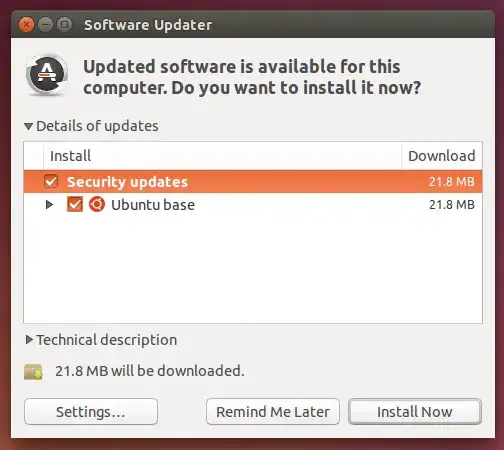Okay, what is a kernel?
In computing, the kernel is a computer program that manages I/O requests from software, and translates them into data processing instructions for the central processing unit and other electronic components of a computer. The kernel is a fundamental part of a modern computer's operating system.

Source, Wikipedia
When does this update?
I think it is lumped in with the Ubuntu Base updates:

The base package is (a) ubuntu-desktop if it is installed, otherwise (b) the alphabetically first of any of the metapackages that are installed, for example, kubuntu-desktop or lubuntu-desktop.
It also seems to have the kernel as part of it - but of course there aren't always kernel updates.
It is normally the kernel that needs the restart when you update (although from 4.0+ it wont).
Source, Ubuntu Wiki
Now to your main question.
I have 6 kernels installed at the moment:
linux-image-3.13.0-32-generic
linux-image-3.13.0-46-generic
linux-image-3.13.0-48-generic
linux-image-3.13.0-49-generic
linux-image-3.13.0-51-generic
linux-image-3.13.0-53-generic
You can find out with this command:
dpkg --list | grep linux-image
Why doesn't ubuntu just remove them?
Well, I sometimes use a different kernel. For example, in the current one I have, linux-image-3.13.0-53-generic, there is a strange bug I got when I broke my xorg.conf file - I couldn't access tty easily. linux-image-3.13.0-51-generic fixed this for me, so I could undo my meddlings.
This is the same for lots of people - Ubuntu isn't in the business to remove packages you might need (even if you haven't used it for years, you may want it). I could do something different, with asking if it needs removing, but it doesn't.
Why is /boot so small?
Why does it need to be big? My current kernel is 5.6 MB:
-rw------- 1 root root 5.6M May 20 12:11 vmlinuz-3.13.0-53-generic
And the total "stuff" for the -53 version is 37.1 MB. You can fit 4 kernels in there, normally enough.
Also, note that the recommended size for /boot is now 500-600 MB.
Do I need it?
You don't - I don't have it. It's not compulsory, but there are some advantages:
- as a rescue partition
- rootfs is on a LVM, RAID, is encrypted, or unsupported by GRUB
- maybe saves a few seconds of boot time
Source, Server Fault

